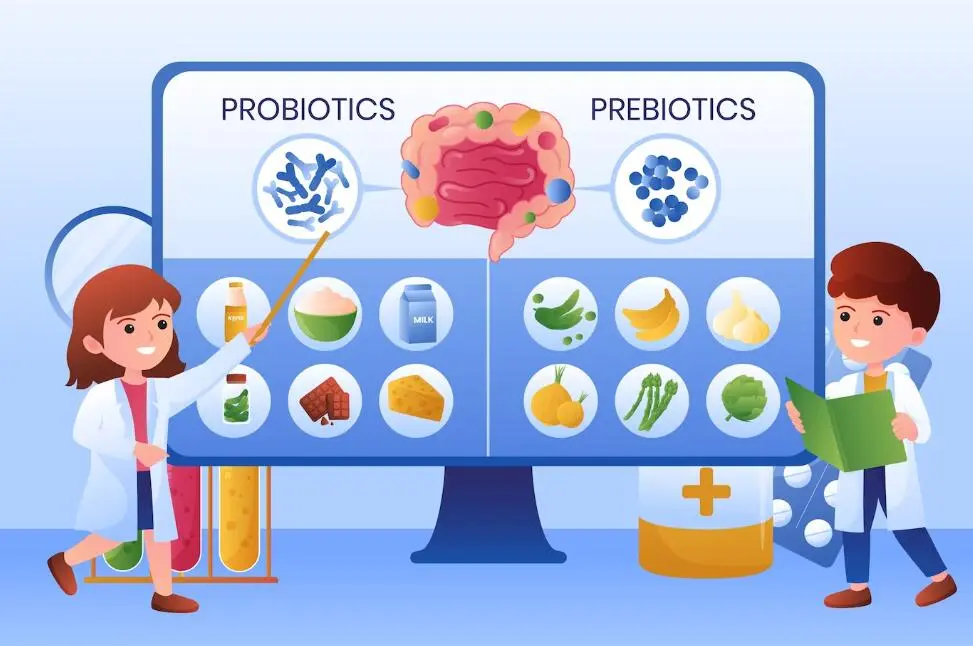In an age marked by health-conscious decisions and the pursuit of well-being, nutrition knowledge stands as a critical cornerstone. For trainers tasked with nurturing a well-informed populace, assessing this knowledge has never been more paramount.
Table of content
- Part 1: 6 Innovative Nutrition Knowledge Assessment Ideas
- Part 2: A Free Online Nutrition Knowledge Assessment Platform for Trainers & Learners
- Part 3: How to Make an Interactive Nutrition Knowledge Assessment?
The Evolving Landscape of Nutrition Knowledge
From the basic food pyramid of yesteryears to today’s intricate understanding of macronutrients, probiotics, and phytonutrients, the realm of nutritional science has experienced seismic shifts. But with this growth comes challenges. The digital era, though a treasure trove of information, is also rife with nutritional myths and misinformation. Trainers, now more than ever, must employ innovative assessment methods to ensure clarity and precision in nutrition education.
6 Innovative Nutrition Knowledge Assessment Ideas

1. Interactive Diet Analysis Tools:
Imagine a platform where users input their daily meals and receive instant feedback on calorie count, vitamin intake, or potential nutritional gaps. Interactive diet analysis tools offer just this, providing a digital mirror to one’s dietary habits. For trainers, this tool isn’t just a test but a teachable moment, helping individuals understand and evaluate the nutritional content in their food choices.
2. Scenario-based Role-playing:
Life is varied, and so are its nutritional challenges. By employing role-playing scenarios, trainers can transport participants into situations demanding nutritional decisions. Whether it’s curating a diet for a marathoner, crafting a pediatric nutrition plan, or navigating the complexities of clinical nutrition, these scenarios test both knowledge and its real-world application.
3. Multimedia Quizzes:
Gone are the days of text-heavy quizzes. Today’s assessments dive into multimedia, integrating images of exotic foods, videos of diverse cooking techniques, or even audio descriptions of dietary habits. Such quizzes challenge participants to identify nutritional values, spot potential allergens, or gauge dietary restrictions, all while keeping engagement high.
4. Hands-on Cooking and Preparation Tests:
Nutrition isn’t just theoretical; it’s profoundly tangible. What better way to assess one’s nutritional knowledge than by diving into the kitchen? By tasking participants with preparing meals that adhere to specific nutritional guidelines, trainers can gauge a deep-seated understanding of food groups, the art of nutrient combination, and the science of portion control.
5. Case Study Analysis:
Presenting a detailed dietary diary and health profile of an individual can be a goldmine for assessment. Trainers can task participants with unraveling nutritional mysteries – spotting deficiencies, identifying excesses, and charting out a balanced diet plan. Such exercises foster critical thinking, ensuring that participants don’t just know nutrition, but understand it.
6. Peer-to-peer Teaching Sessions:
They say, “To teach is to learn twice.” By incorporating peer teaching sessions, trainers can achieve a dual goal. While the ‘teacher’ solidifies their understanding by explaining complex nutritional concepts, the ‘learner’ benefits from a fresh perspective, often peppered with personal insights and experiences.
Just so you know
With OnlineExamMaker quiz software, anyone can create & share professional online assessments easily.
Tips for Effective Nutrition Knowledge Assessments

1. Stay Updated with Recent Research:
Nutritional science is dynamic. For any assessment to be effective, it must resonate with the latest research. Trainers must ensure they’re basing their evaluations on contemporary and scientifically-backed evidence.
2. Prioritize Holistic Understanding:
Beyond rote memorization of facts, assessments should delve into the practical realm, testing how well participants can apply their knowledge in varied contexts.
3. Promote Ethical Considerations:
In an interconnected world, where the plate’s contents often tell a story of global trade, sustainability, and cultural nuances, assessments should not shy away from topics like sustainable eating and ethical sourcing.
4. Incorporate Feedback Mechanisms:
Learning thrives on feedback. By integrating immediate feedback loops in assessments, trainers can highlight areas needing attention, propelling participants towards continual improvement.
5. Ensure Diversity in Assessment Scenarios:
Nutrition is global, and assessments should reflect this diversity. Incorporating various dietary needs, cultural foods, and health conditions ensures a comprehensive evaluation.
A Free Online Nutrition Knowledge Assessment Platform for Trainers & Learners
OnlineExamMaker is a user-friendly and feature-rich online assessment platform that simplifies the creation, delivery, and grading of tests and quizzes. With its secure test delivery, automated grading, and comprehensive analytics, OnlineExamMaker empowers nutrition knowledge trainer to effectively assess nutrition knowledge of learners. The platform’s customization options and flexible pricing plans make it a versatile solution for a wide range of assessment needs.
Key Features:
Webcam Monitoring: The webcam will take photos and record video to monitor the candidate during the exam. The exam organizers can view the photos and video in real-time. The photos and videos will also be hosted on the server, and they can be seen after the test is complete as well.
Secure Online Proctoring: With advanced anti-cheating measures, OnlineExamMaker ensures the integrity of exams. It incorporates features such as live video monitoring, AI-based facial recognition, screen recording, and browser lockdown to prevent malpractices.
Automated Grading: The platform automates the grading process, saving time and eliminating human errors. It supports various evaluation methods, including MCQs, descriptive answers, coding exercises, and more.
Create Your Next Quiz/Exam with OnlineExamMaker
How to Make an Interactive Nutrition Knowledge Assessment?
Step 1: Go to OnlineExamMaker dashboard.
Step 2: Upload nutrition assessment questions in bulk to OnlineExamMaker question bank.
Step 3: Set up a new assessment, and modify settings.
Step 4: Publish & share your nutrition knowledge assessment with learners.
The Future of Nutrition Knowledge Assessments
As we cast our eyes to the horizon, the assessment landscape hints at further evolution. With technologies like AI and Augmented Reality on the rise, trainers might soon harness these tools to craft personalized, immersive assessment experiences, charting the path for a populace well-versed in the nuances of nutrition.